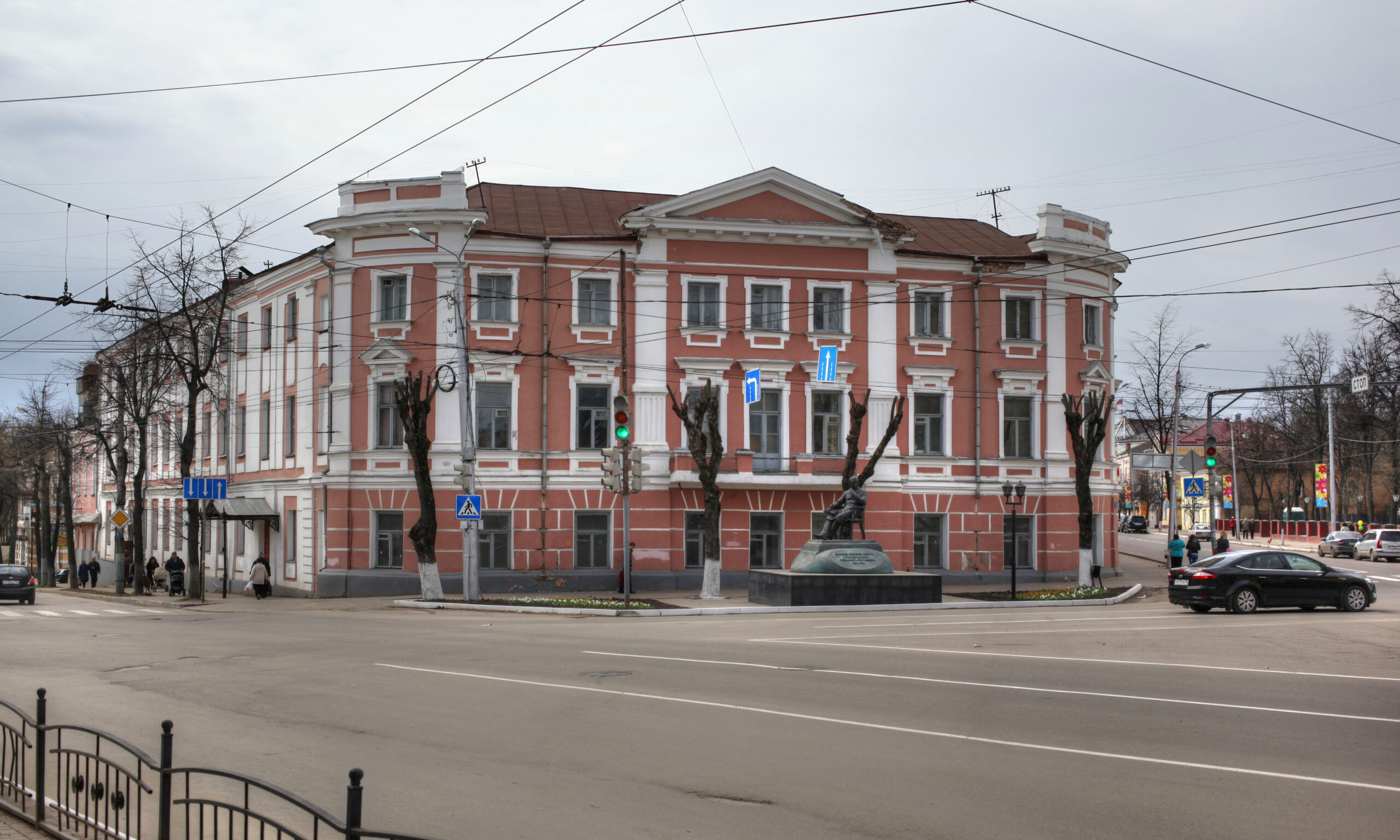
Kaluga State Pedagogical Institute was organized on the basis of the teacher’s institute in accordance with the order of the Council of Ministers of the USSR of 17.02.1948 1741-r and the order of the Council of Ministers of the RSFSR of 25.02.1948 242-r.
By order of the State Committee of the Russian Federation of 12.07.1994. 699 and by order of the Ministry of Education of the Russian Federation of 27.07.1994. 290 Kaluga State Pedagogical Institute. K.E. Tsiolkovsky» was renamed the «Kaluga State Pedagogical University K.E. Tsiolkovsky».
20 December 2002 Kaluga State Pedagogical University. K.E. Tsiolkovsky» is entered into the Unified State Register of Legal Entities as the State educational institution of higher professional education «Kaluga State Pedagogical University named after. C.E. Tsiolkovsky», which by the order of the Federal Agency on Education of May 6, 2010. 426 has been renamed the State educational institution of higher professional education «Kaluga State University named after. K.E. Tsiolkovsky».
By order of the Ministry of Education and Science of the Russian Federation of 20 May 2011. 1679 State educational institution of higher vocational education Kaluga State University. K.E. Tsiolkovsky» has been renamed to the federal state budget educational institution of higher professional education «Kaluga State University named after him. K.E. Tsiolkovsky», which by order of the Ministry of Education and Science of the Russian Federation of 21 March 2016. 260 has been renamed to the federal state budget educational institution of higher education «Kaluga State University it. K.E. Tsiolkovsky»
Kaluga State Pedagogical University has several faculties that offer undergraduate and postgraduate programs in various fields of medicine. These faculties are:
There are a lot of versions about the origin of the name of Kaluga. The main version is that it was named after the Kaluzhka River flowing near the original settlement. The name of the river originates from the Russian words “kalyuzha”, “kalyuzhina” meaning “swamp”. The City Day of Kaluga is celebrated on the last Saturday of August.
The climate is temperate continental, winters are snowy and moderately cold, summers are warm and rainy. The average temperature in January is minus 8.6 degrees Celsius, in July – plus 17.7 degrees Celsius.
The city’s economy is based on the automotive industry, mechanical engineering and metalworking, food and light industry, electric power, building materials industry.
The airport of Kaluga offers regular flights to Moscow, St. Petersburg, Rostov-on-Don, Kaliningrad, Krasnodar, Sochi, Yekaterinburg, Kazan.
In the historic center of the city you can see numerous architectural monuments, which form unique ensembles. Kaluga has a lot of preserved churches of the 17th-18th centuries, noble mansions, former merchants’ houses converted into museums.
In one day, you can see almost all the main attractions. Travelers are attracted primarily by its provincial charm, wide streets, and picturesque views from the banks of the Oka River.
Kaluga is often called “the cradle of cosmonautics”, “the city of Tsiolkovsky.” Konstantin Tsiolkovsky, the great scientist and founder of theoretical cosmonautics, spent most of his life in Kaluga. His name is immortalized in the names of many urban sites.
In 2000, a motto tape “The Cradle of Cosmonautics” was added to the historical coat of arms of Kaluga with a stylized image of the first artificial Earth satellite.
Russia is economically cheap for students yet one of the preferred choices for international students to study MBBS for the following reasons:
Studying in Russia is a beneficial choice for students wanting to pursue higher studies MBBS in foreign. A few of these attractive benefits are listed below:
